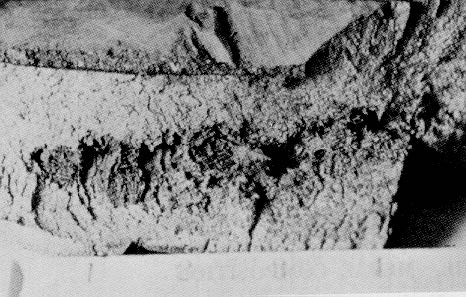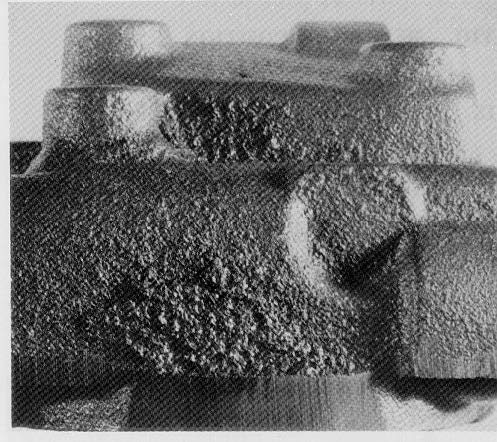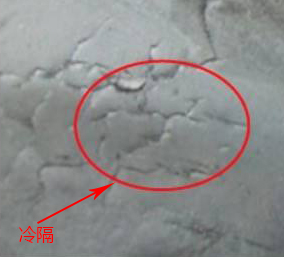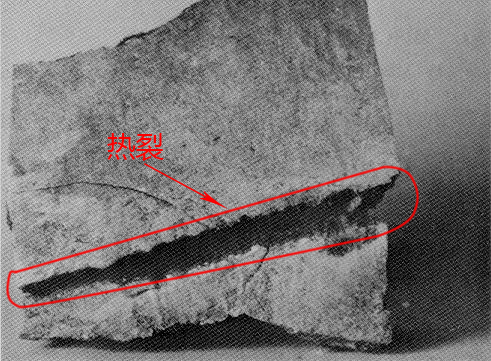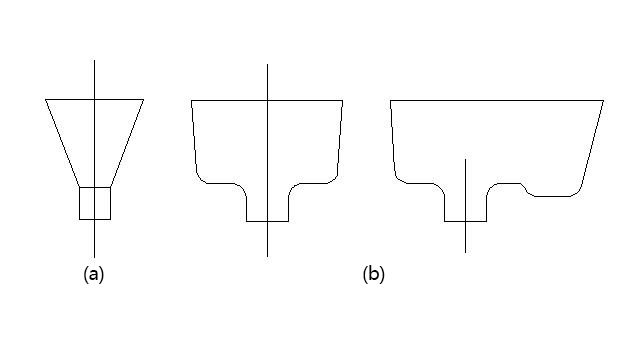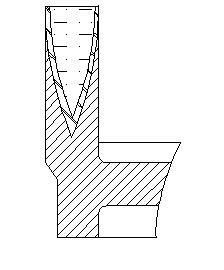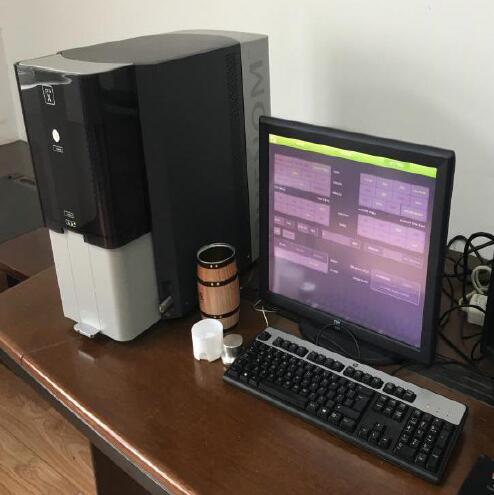低碳钢铸造缸头浇冒口的开裂分析毕业论文
2020-06-20 19:17:36
摘 要
内燃机是驱动现代机械的核心设备,在汽车、轮船、工程机械中扮演着重要的角色,而内燃机缸头结构复杂,连接的零件众多,其中还设有油道和气道,所以,铸造成为内燃机缸头制造的不二之选。但由于其结构复杂,在浇注成型过程中易出现铸造缺陷,因此合理地设计铸造工艺,尽可能地减少铸造缺陷,在很大程度上影响着内燃机的生产和升级。
在本论文中,首先就内燃机缸头的复杂结构分析了铸造工艺的不可替代性,并对铸造原理进行了一定的阐述。其次,通过对典型的铸造缺陷进行分析,总结了一些常见的铸造缺陷,阐述其对铸件的影响,并提出了防止此类缺陷的方法。最后,对低碳钢铸造缸头的浇冒口中出现的缺陷进行详细的分析,通过其宏、微观形貌的观察和化学成分的分析,解释了该缺陷出现的原因,并提出防止措施。
关键词:铸造;缸头;浇冒口;开裂
Cracking Analysis of Low - carbon Steel Casting Cylinder Head Riser
Abstract
Internal combustion engine is the core equipment to drive modern machinery, which plays an important role in the car, ship and construction machinery. The structure of the engine cylinder head is complex and there are many connected parts, and also has oil and airway. For the manufacture of engine cylinder head, casting is the best choice to produce engine cylinder. The casting defects easily shows up during the casting process as the reason of its complex structure. Therefore, the rational design of the casting process, as much as possible to reduce casting defects, affected the production and upgrading of internal combustion engines greatly.
In this thesis, the casting process is analyzed on the complex structure of the cylinder head of the engine, then the casting principle is described. Secondly, through the analysis of typical casting defects, the effects of common casting defects on casting work are summarized, and the methods to prevent such defects are put forward. Finally, the defects in the pouring riser of the low carbon steel casting cylinder are analyzed in detail, and the reason of the defect is explained by the observation of the macrostructure and microstructure and the chemical composition analysis.
Key words:Casting; Cylinder head; Pouring riser; Cracked
目录
摘要 I
Abstract II
第一章 内燃机缸头及其制造 1
1.1概述 1
1.2内燃机的发展趋势 1
1.3内燃机缸头的结构和生产工艺 2
1.3.1内燃机缸头结构 2
1.3.2内燃机缸头生产手段 3
1.4铸造原理及其成型特点 3
1.5工艺流程 4
1.5.1造型(芯) 4
1.5.2浇注 5
1.5.3落砂清理与质量检验 5
1.6铸造成型特点 6
1.7小结 6
第二章 铸造缺陷与浇冒口的作用 7
2.1概述 7
2.2铸造缺陷及防止 7
2.2.1孔洞类缺陷 7
2.2.2缩孔、缩松 8
2.2.3与造型相关的缺陷 9
2.2.4与浇注相关的缺陷 10
2.2.5与冶金相关的缺陷 10
2.2.6偏析缺陷 11
2.3浇口作用及设计 12
2.4冒口作用 13
2.4.1冒口的作用和种类 13
2.4.2冒口补缩和冷铁的运用 13
2.5小结 14
第三章 实验材料与实验设计 15
3.1概述 15
3.2实验材料与实验设计 15
3.2.1实验材料 15
3.2.2实验设计 15
第四章 低碳钢铸造缸头浇冒口开裂分析 20
4.1概述 20
4.2结果与讨论 20
4.2.1宏观形貌分析 20
4.2.2拉伸实验分析 21
4.2.3拉伸断口分析 22
4.2.4组成成分分析 23
4.2.5显微组织分析 23
4.2.6显微硬度分析 27
4.3小结 27
第五章 结论与展望以及经济性分析 28
5.1结论 28
5.2展望 28
5.3经济性分析 28
参考文献 30
致谢 33
第一章 内燃机缸头及其制造
1.1概述
人类社会的发展进程离不开机械,可以说每一个时期的机械虽然在驱动传动形式、效率上有所不同,但其都使得人类社会得到了飞跃式的发展。随着时代的发展,亟待解决的能源问题和对动力机轻量化、高效化的要求一直从侧面推动着各类动力机的发展,各种类型的动力机如蒸汽机、电动机、涡轮机、内燃机、风力机等不断的升级和更替,其中内燃机由于较高的热效率,宽广的功率转速范围,紧凑的结构,启动迅速操作简单等优点,成为绝大多数汽车、轮船、工程机械动力源的不二之选,依然扮演着重要的角色[1]。
1.2内燃机的发展趋势
早在1700年作为现代内燃机的原型——蒸汽机就问世了,随后经过瓦特的改进,使其进入了实用阶段,也促进了欧洲的工业革命。随着热力学理论的发展,经过不断的改革,蒸汽机的效率得到了飞速的提升。到了20世纪20年代,随着工业生产技术的提高,蒸汽机需要外配锅炉导致结构巨大以及传动要通过蒸汽介质导致效率受限这两个最致命的弱点已然难以满足当时的生产要求,因此需要发展新型的动力机。
1860年前后,为了缩小蒸汽机的体积,学界中有关改外燃为内燃的设想很多,也提出了一系列内燃机理论,直至1876年奥托制成了第一台四冲程煤气机,才标志着真正意义上的内燃机诞生于世。不过这台煤气机需要以气体为燃料,而其效率只能达到14%,依然难以满足需求。
相关图片展示:
